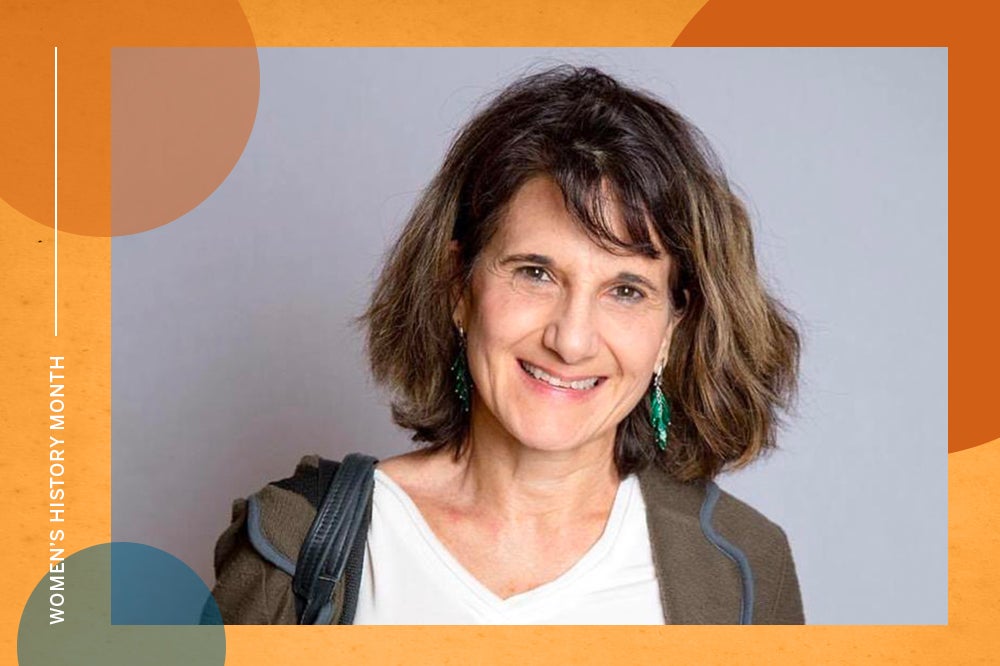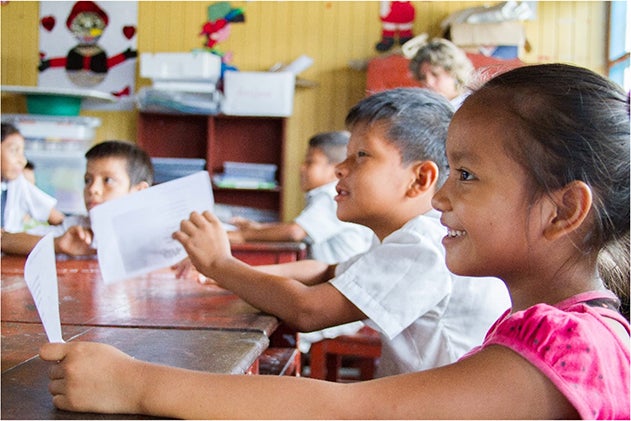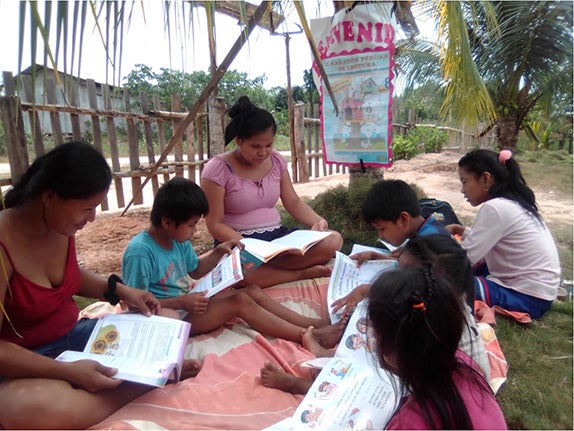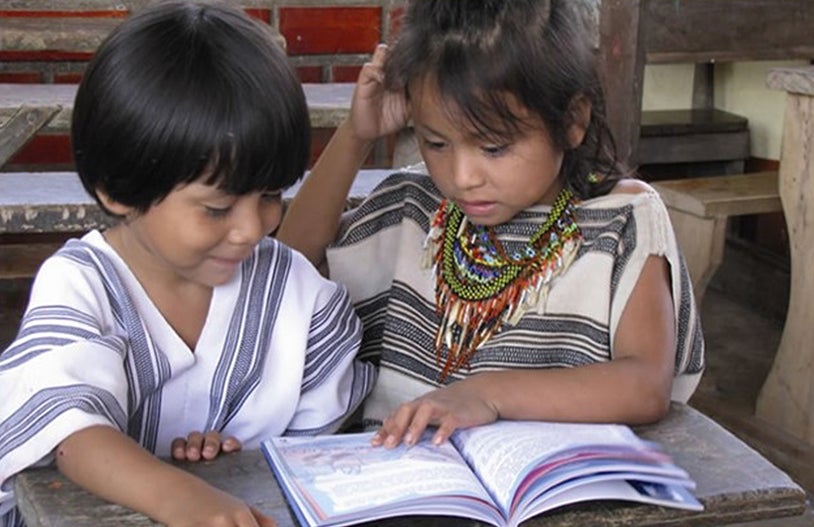
Desirée Pallais-Downing, Ph.D., assistant professor of instruction in the Department of Curriculum and Instruction, is part of a two-person faculty team that recently received a 2022-2023 President’s Award for Global Learning for their proposal “Enhancing Global Education Initiatives in Literacy Development Through an Understanding of Context.” Working to address issues of equity, diversity and inclusion in historically marginalized communities, Dr. Pallais, along with research partner Dr. Patience Epps, a professor in the Department of Linguistics in the College of Liberal Arts, hopes this research will contribute to the reversal of language loss and the promotion of literacy development in the Peruvian Amazon.

The President’s Award program was created with the objective of invigorating international engagement between UT Austin and the world, and provides interdisciplinary faculty collaboration, transnational institutional partnerships, cross-cultural work and research opportunities for students.
We sat down with Dr. Pallais-Downing to learn more about the proposal, the importance of this research and what inspires her.
Congratulations on your award. Your proposal aims to contribute to reversing language loss and promote context-based literacy efforts in the Peruvian Amazon. That’s pretty amazing. Can you tell me a little more about how you became involved with the Amazon and what was the catalyst for the proposal?
I started to appreciate the importance of considering the historical, linguistic, and cultural context as part of the design, implementation, and evaluation of literacy-focused initiatives when I first visited Peru in 2012 for a consulting assignment. The powerful catalyst for this proposal came in 2014 after being part of evaluating a knowledge recuperation initiative in Amazonian communities in Ecuador, Bolivia, and Peru. I saw curricular proposals and concrete classroom-oriented pedagogical materials originating in ethnographic research that had brought to light Amazonian worldviews and cultural practices.
How long have you been working on/toward this research project and what has it been like collaborating with your international partners?
My first attempt at this proposal was summer of 2021. I couldn’t have asked for better collaborators than Raquel Villaseca, Danilo de la Cruz, and Virgilio Holguín, three outstanding educators from Cayetano Heredia University in Peru. With the financial support of international organizations, they have designed and implemented successful pedagogical projects to promote reading considering the local context. I collaborated with them in several activities, including study tours of Peruvian educators to Texas and literacy conferences. For this proposal, they offered detailed implementation plans and the commitment of educators at different levels in Peru.

What would you like to see because of your research? What do you want people to know and understand from studying these populations in the Amazon?
I have two main goals with this proposal, which may involve research. One is to contribute to a broad cross-disciplinary effort to make international projects in education more effective and impactful through a careful understanding of context. The latter may include re-considering cultural assumptions and de-centering perspectives developed in industrialized and English-only settings. Another one is to contribute to making visible to the academic community the multiple talents, pedagogical visions, and contributions of educators in Peru, particularly those working with Amazonian people. Learning from Amazonian populations will happen through intercultural experiences, the documentation of native languages and bilingual approaches in a country where Spanish is the second language, and creative interdisciplinary project design or research ideas.
What inspires you?
Despite its challenges and limitations, I am inspired by a vision of education that involves integrating, collaborating and/or bridging different knowledge and research frameworks. I am also inspired by educational efforts that address inequalities through empowering and transformative methodologies, including carefully designing pedagogies aiming at student success based on the available literature and research, not prescriptive but respectful of context, individual identities, and human agency.


